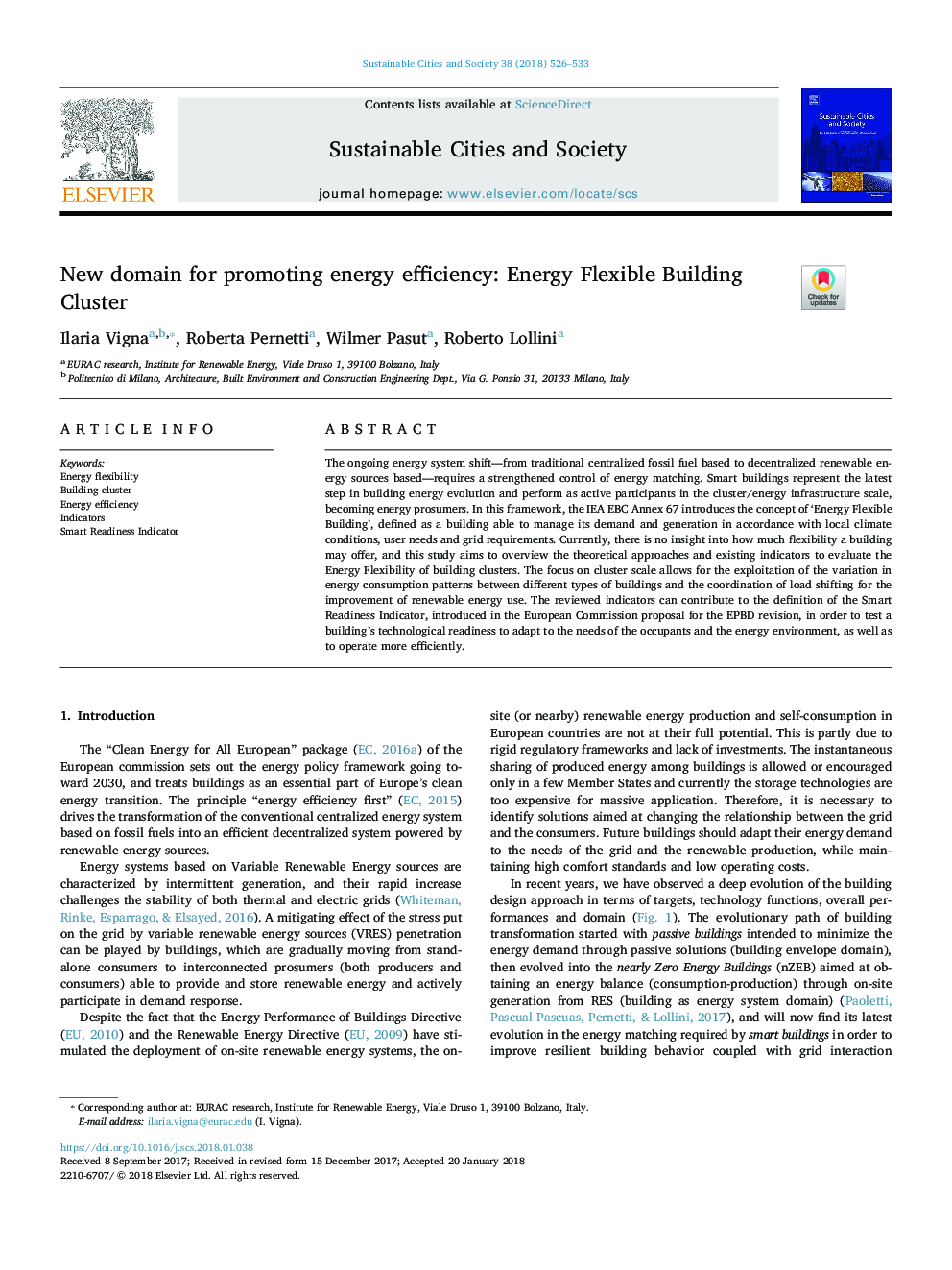| Article ID | Journal | Published Year | Pages | File Type |
|---|---|---|---|---|
| 6775503 | Sustainable Cities and Society | 2018 | 8 Pages |
Abstract
The ongoing energy system shift-from traditional centralized fossil fuel based to decentralized renewable energy sources based-requires a strengthened control of energy matching. Smart buildings represent the latest step in building energy evolution and perform as active participants in the cluster/energy infrastructure scale, becoming energy prosumers. In this framework, the IEA EBC Annex 67 introduces the concept of 'Energy Flexible Building', defined as a building able to manage its demand and generation in accordance with local climate conditions, user needs and grid requirements. Currently, there is no insight into how much flexibility a building may offer, and this study aims to overview the theoretical approaches and existing indicators to evaluate the Energy Flexibility of building clusters. The focus on cluster scale allows for the exploitation of the variation in energy consumption patterns between different types of buildings and the coordination of load shifting for the improvement of renewable energy use. The reviewed indicators can contribute to the definition of the Smart Readiness Indicator, introduced in the European Commission proposal for the EPBD revision, in order to test a building's technological readiness to adapt to the needs of the occupants and the energy environment, as well as to operate more efficiently.
Related Topics
Physical Sciences and Engineering
Energy
Renewable Energy, Sustainability and the Environment
Authors
Ilaria Vigna, Roberta Pernetti, Wilmer Pasut, Roberto Lollini,
